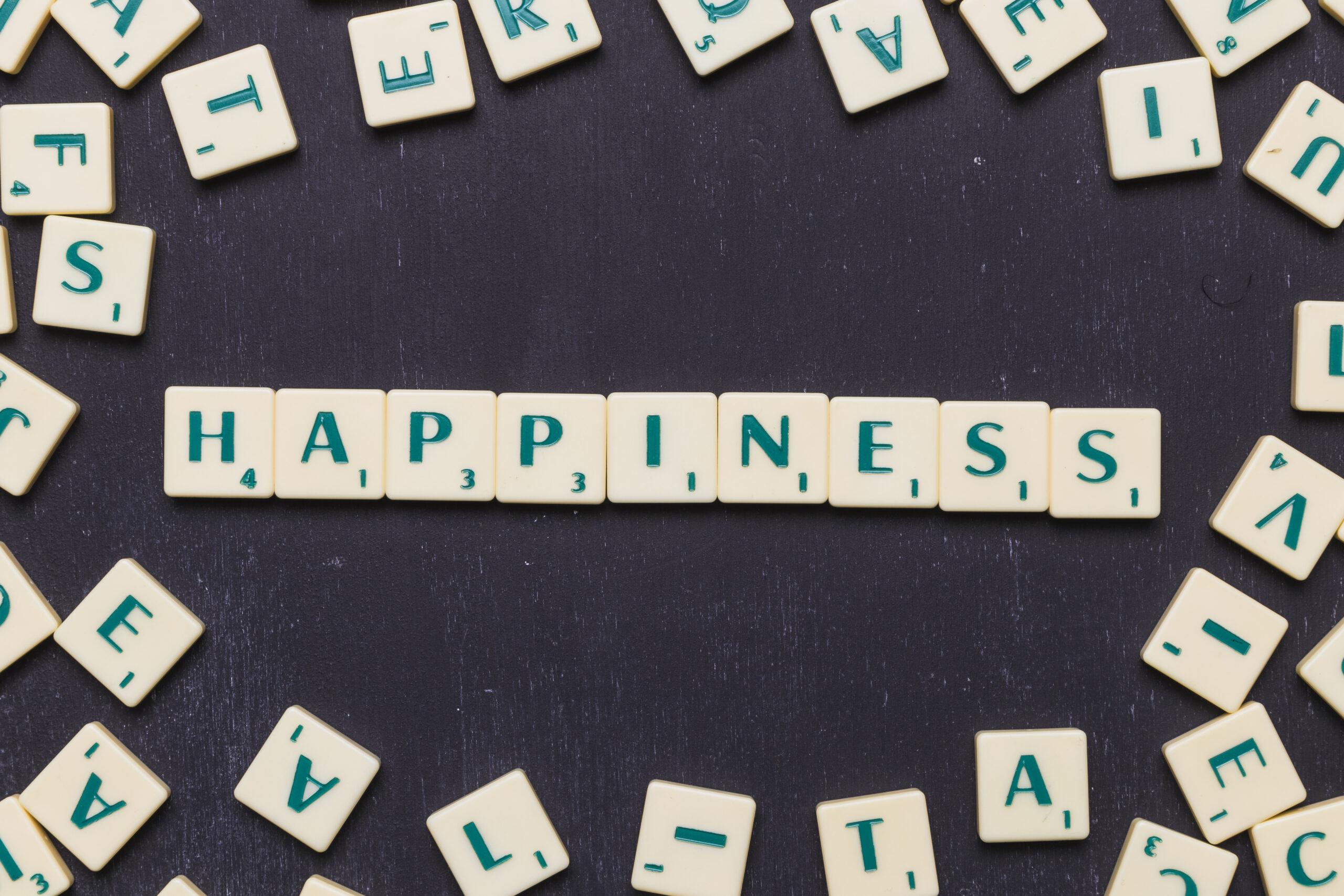The truth about happiness
Many people misunderstand happiness as a constant state of joy or pleasure, which leads them to chase fleeting moments of enjoyment. However, this pursuit can feel like an endless race, where the excitement of new experiences fades quickly, leaving us wanting more.
In contrast, true happiness comes from a deeper sense of fulfillment and contentment. It’s not about constantly seeking external pleasures but rather about cultivating a mindset that appreciates the present moment.
True happiness doesn’t rely on external factors like material possessions, achievements, or status. Instead, it comes from within—from a state of inner peace and acceptance. While momentary satisfaction, such as the joy of a new purchase or a fun experience, often equates to pleasure, this satisfaction is fleeting. We soon crave something else, something bigger or better, to keep the excitement going. This is why the pursuit of pleasure can feel like an endless race, where enough is never enough.
But happiness is different. It’s about finding contentment in the simple things, appreciating what you have, and realizing that your worth doesn’t depend on external achievements. It doesn’t make you “small” or unambitious. Instead, it grounds you in a deeper sense of purpose and balance, where you’re not constantly chasing more but rather appreciating what truly matters.
In essence, happiness isn’t about having everything—it’s about needing less.
Happiness lets you stop wanting more and enjoy life. It’s a state of being where you realize that true joy doesn’t come from constantly seeking new pleasures but from embracing peace, growth, and connection. While pleasure is fleeting, happiness is enduring. Happiness originates from within and finds its roots in elements such as gratitude, self-awareness, love, and meaningful relationships.
Happiness doesn’t make you small or limit your potential. In fact, it can expand your understanding of what truly matters. Instead of chasing after things that only bring temporary satisfaction, happiness helps you focus on what brings lasting fulfilment—whether that’s personal growth, helping others, or simply living in harmony with your values.
When you stop running after temporary pleasures and focus on inner contentment, you begin to understand that happiness isn’t something to chase but something to nurture. It’s not about achieving a goal, but about how you live and approach life each day. Happiness is a state of mind, not a goal, and when you embrace it, you stop the endless pursuit and find peace in the present moment.

The Truth About Happiness: Essential for Life and Productivity
Happiness is not just a word or a passing emotion—it’s a vital part of everyday life. It plays a key role in how we live, how we think, and how productive we are.
When you embrace happiness, you will love yourself and accept your path. This self-acceptance helps you stay positive and motivated, even when the way forward seems unclear, or you feel like you’re running without a clear direction.
When there’s no clear path, happiness gives you the energy to move forward.
It’s not just about achieving goals or reaching destinations; it’s about finding joy in the journey itself. When you learn to accept and appreciate where you are in life, happiness becomes a guide, keeping you motivated and productive even in times of uncertainty. 
When you truly accept yourself and focus on what makes you happy, it can transform your approach to life. You learn to find fulfilment in the present moment instead of constantly worrying about what you haven’t achieved or where you’re heading. This mindset shift brings peace and boosts productivity by eliminating distractions from perfection and failure concerns.
In short, happiness is essential to your daily life. It allows you to love yourself, embrace the moment, and keep moving forward—regardless of whether you know the exact path ahead. It’s a source of inner strength that helps you face life with confidence and resilience, even when the future seems uncertain.

Truth About Happiness: 10 “Formulas” add on
Here are 10 simple, conceptual “formulas” to help understand different aspects of happiness:
1. Happiness = gratitude + mindfulness.
Practicing gratitude and staying present in the moment can lead to a deeper sense of happiness and contentment.
2. Happiness = acceptance + growth
Embracing who we are while striving for personal growth creates a balanced, fulfilling approach to life.
3. Happiness = positive relationships + connections.
Meaningful connections with family, friends, and communities are some of the most reliable sources of happiness.
4. Happiness = purpose + passion.
When our daily actions align with our passions and purpose, we feel happier and more fulfilled.
5. Happiness = health + self-care.
Good physical and mental health, supported by self-care habits, provides a solid foundation for a fulfilled life.
6. Happiness = kindness + compassion
Being kind to others and showing compassion brings a sense of warmth, connection, and satisfaction.
7. Happiness = learning + curiosity.
A curious mindset and a willingness to learn and explore bring excitement and joy while keeping life interesting.
8. Happiness = balance + boundaries.
Balancing work, rest, and personal life with clear boundaries prevents burnout and fosters lasting happiness
.
9. Happiness = resilience plus optimism.
Developing resilience to life’s ups and downs, along with a positive outlook, helps sustain happiness even during challenges.
10. Happiness = simplicity + contentment
Finding joy in simple things and being content with what we have reduces stress and creates lasting happiness.
Each of these “formulas” highlights different aspects of happiness, showing how mental, emotional, physical, and relational elements all contribute to a fulfilling life.
Truth About Happiness: 10 “Formulas” exit on
Here are two formulas that capture the idea of “exiting” certain routines, mindsets, or environments to find happiness in daily life:
1. Happiness = (Letting Go of Stress + Embracing Presence) – Routine Overload
By stepping away from unnecessary stress and overly packed routines and focusing on the present moment, we create room for genuine happiness.
2. Happiness = (Disconnecting from Negativity + Reconnecting with Self)
Taking breaks from negative influences, whether they are people, social media, or habits, allows us to reconnect with our authentic selves, bringing peace and happiness.
3. Happiness = (Less Comparison + More Appreciation)
By “exiting” the habit of comparing ourselves to others and instead focusing on appreciating what we have, we cultivate a sense of fulfillment and happiness.
4. Happiness = (Unplugging + Engaging in Real-World Experiences)
Stepping away from screens and digital distractions allows us to be more engaged in real-life experiences, which often lead to a richer, more satisfying sense of happiness.
5. Happiness = (Letting Go of Perfection + Accepting Imperfection)
Releasing the need for perfection frees us from constant self-criticism and stress, helping us enjoy life as it is, with its natural ups and downs.
6. Happiness = (Taking Breaks + Practicing Self-Reflection)
Regularly stepping back from the hustle and bustle of daily life to reflect on what we truly need helps us make choices that align with our well-being, creating deeper happiness.
7. Happiness = (Simplifying + Focusing on What Matters)
Reducing clutter—whether mental, physical, or emotional—and concentrating on meaningful aspects of life fosters a sense of peace and happiness.
8. Happiness = (Forgiving Past Mistakes + Moving Forward)
Letting go of past regrets and focusing on growth allows us to live with greater positivity and self-compassion, key elements of happiness.
9. Happiness = (Taking Small Adventures + Breaking Routine)
Introducing small adventures or changes, like trying new activities or exploring new places, keeps life interesting and joyful, even in daily routines.
10. Happiness = (Less Worrying + Trusting the Process)
Reducing worry about things we can’t control and learning to trust the natural flow of life can create a more relaxed, happier mindset.
These formulas suggest that sometimes we need to “exit” or take breaks from certain patterns to make space for the things that truly bring us joy and contentment.

Leave a Reply